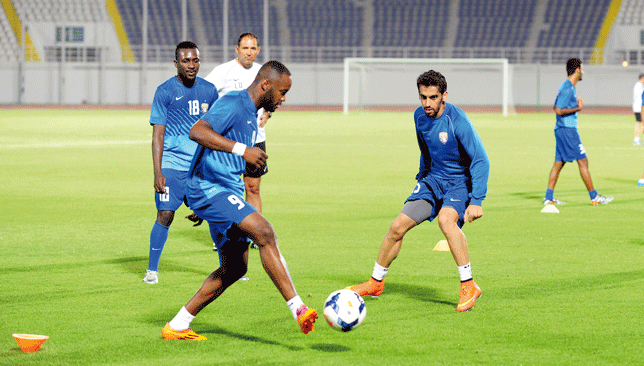
While the World Cup rumbles on in Brazil, several UAE football clubs have already begun braving the summer heat as they return to pre-season training.
Al Wasl have been back at work for almost two weeks, Al Ain and Bani Yas’ players returned to the training pitch on Tuesday night, while the rest of the Arabian Gulf League will follow suit over the coming fortnight.
With the holy month of Ramadan beginning last Sunday, and with the majority of professional footballers in this country fasting, that raises the question of injury prevention.
That certainly was the discourse at the World Cup, where Muslim players – including Mesut Ozil, Karim Benzema and Paul Pogba – have been faced with the dilemma of whether to fast or not.
It does not take a scientist to work out that abstaining from food and water during sunlight hours might have an affect on physical performance.
Yet the results of studies have been surprisingly mixed.
While some studies have found an increase in muscle fatigue and muscle power, resulting in reduced speed, agility, dribbling and endurance, another interesting report found that the body could adapt to fasting.
In 2008, a group of scientists tested 85 young Tunisian professionals based at the country’s Football Federation and, while their performance initially dipped, by the end of the month those levels had risen.
The report ultimately came to the conclusion that Ramadan had “little effect” on physical performance.
One man who would probably agree with that outcome is Al Ain coach, Zlatko Dalic.
The Croatian is back in training with the Boss as they prepare for the first leg of their AFC Champions League quarter-final against Al Ittihad next month.
Dalic, who worked in Saudi Arabia for almost four years before arriving in the UAE, says the major effect of Ramadan is on when training can be held, rather than what can be done during it.
Players, in his experience, like to sleep during the morning so you cannot put on two separate sessions – physical and technical training must both be done at night, after Iftar.
“For me, from my experience, it’s better to train only once daily because all day without anything, without food, without water [is not good],” Dalic said.
“I have had a bad experience with training only once in Ramadan because the players don’t like training in the morning. So I will make one training in Ramadan.
“This training will be longer, maybe two hours maximum. Usually I train for one hour 30 minutes full, but now I will put on longer sessions and prepare my team and I hope they will use this time very well.
“It’s a difficult time but I hope we will be okay.”
Indeed, with training occurring mostly in the evening throughout the UAE season anyway, this is not the inconvenience it might be in other parts of the world.
In Brazil, players are being asked to play in the stifling midday sun whereas those returning to training in the UAE have not been in action for nearly two months.
As Dalic infers, that means that they need to bed themselves into training gradually anyway, making Ramadan less of an issue again.
Al Ain, for example, head to Turkey for a training camp on Friday, and it is only then that their fitness work will start to increase in intensity.
“We have had rest for 40-45 days, we must start easy,” the Croatian added. “In the camp we will make strong training, fitness and typical training for a game because for us the most important thing is our first game against Al Ittihad in the AFC Champions League.
“We must be on top form on August 19, that is most important for me and my team because it is a difficult time, not to start in the league but with a knock-out game. We must work hard in this time and I must prepare my players.”